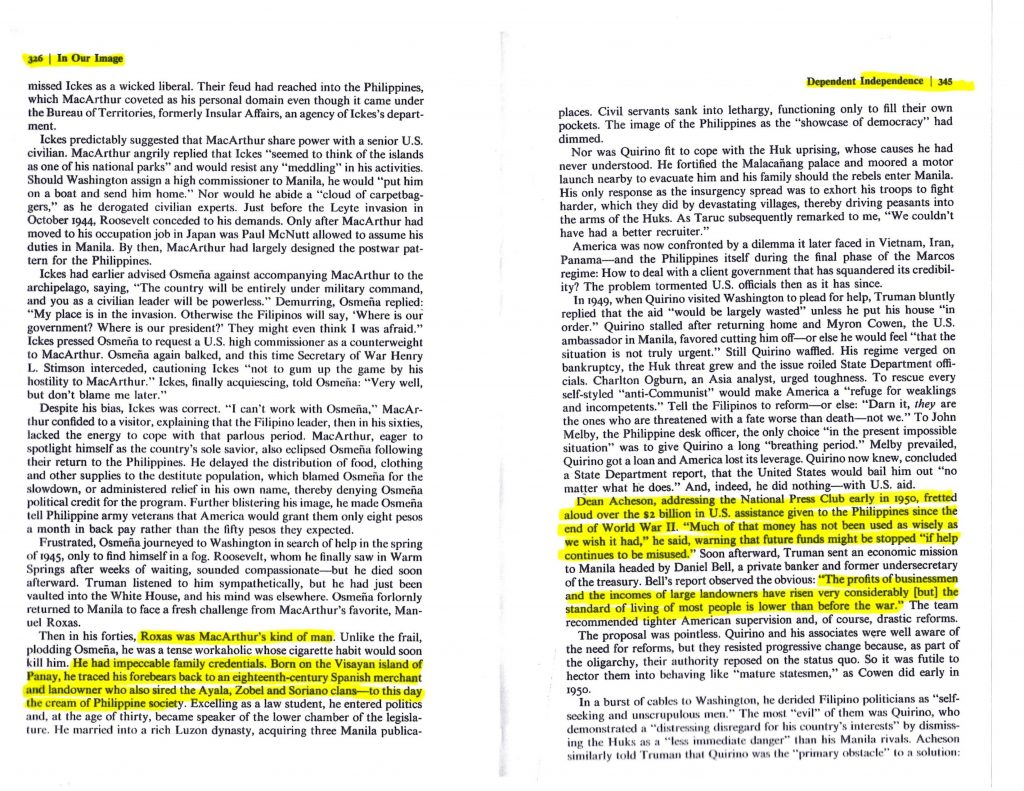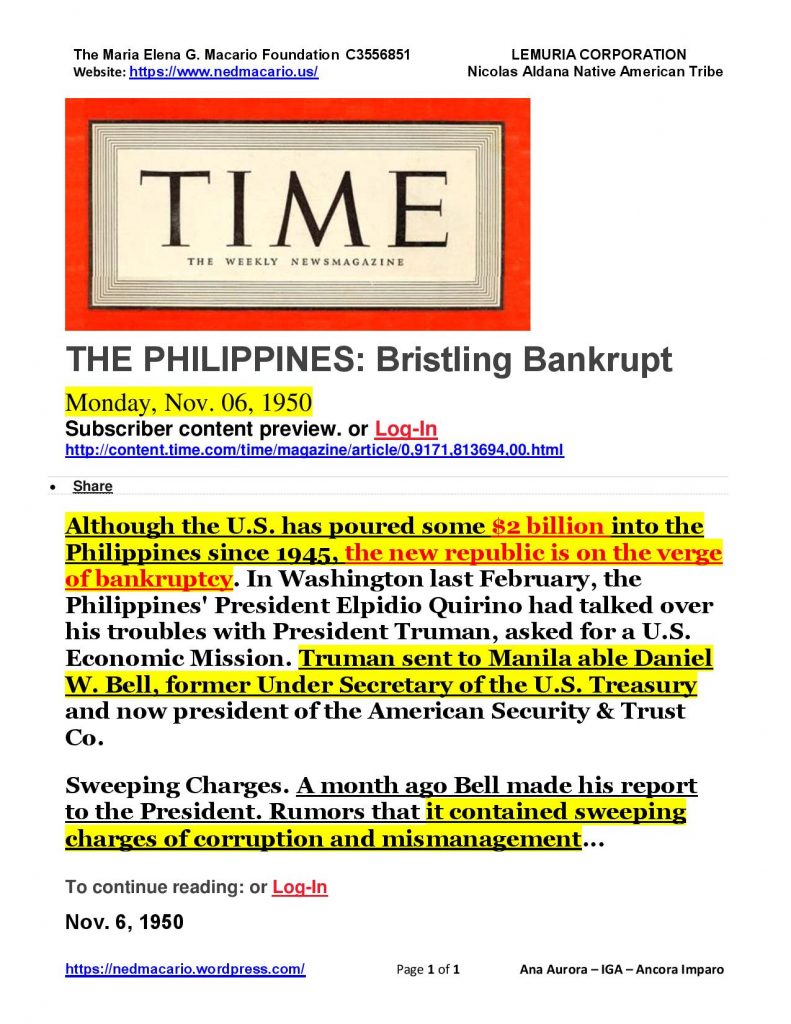“It is a strange coincidence, President (Manuel A.) Roxas that Chief Prosecutor (Lorenzo) Tañada, who compiled the list of collaborationist suspects to be tried, and who conveniently failed to include you, has become the solicitor general in your administration.
Did you or did you not, President Roxas, support a declaration of war against the United States while wearing the uniform of a brigadier general in the Army of the United States?
Did you or did you not help to write the constitution of the Japanese-controlled puppet government?
Were you, or were you not an adviser of Laurel, the puppet president?
Is it not true that as a prisoner of war, you could not have been compelled to contribute any services to the puppet government?
The Associated Press reports that you are now being urged by Mr. Tañada to proclaim a general amnesty for all collaborationist suspects. Your inaugural address indicates that you are inclined to do so@. The American people would not understand such action.”
From: Roxas Is Asked To Explain Stand – Man-To-Man
By Harold L. Ickes – Pittsburgh Post-Gazette: Monday, July 22, 1946 Page 18
@ – Proclamation No. 51, s. 1948 Granting amnesty to all collaborators.
http://www.gov.ph/1948/01/28/proclamation-no-51-2/
As US Interior Secretary Harold Ickes warned, on Jan. 28, 1948 quisling-turned president Manuel Roxas, Sr. signed Proclamation No. 51 granting amnesty to traitors, collaborators and those who traded with the enemy. Since Roxas himself was not on the list of collaborators, he was not included in the amnesty.
On April 15, 1948 Manuel Roxas died of a heart attack an uncharged, suspected traitor and president of the Philippines. Only in the Philippines (OIP)
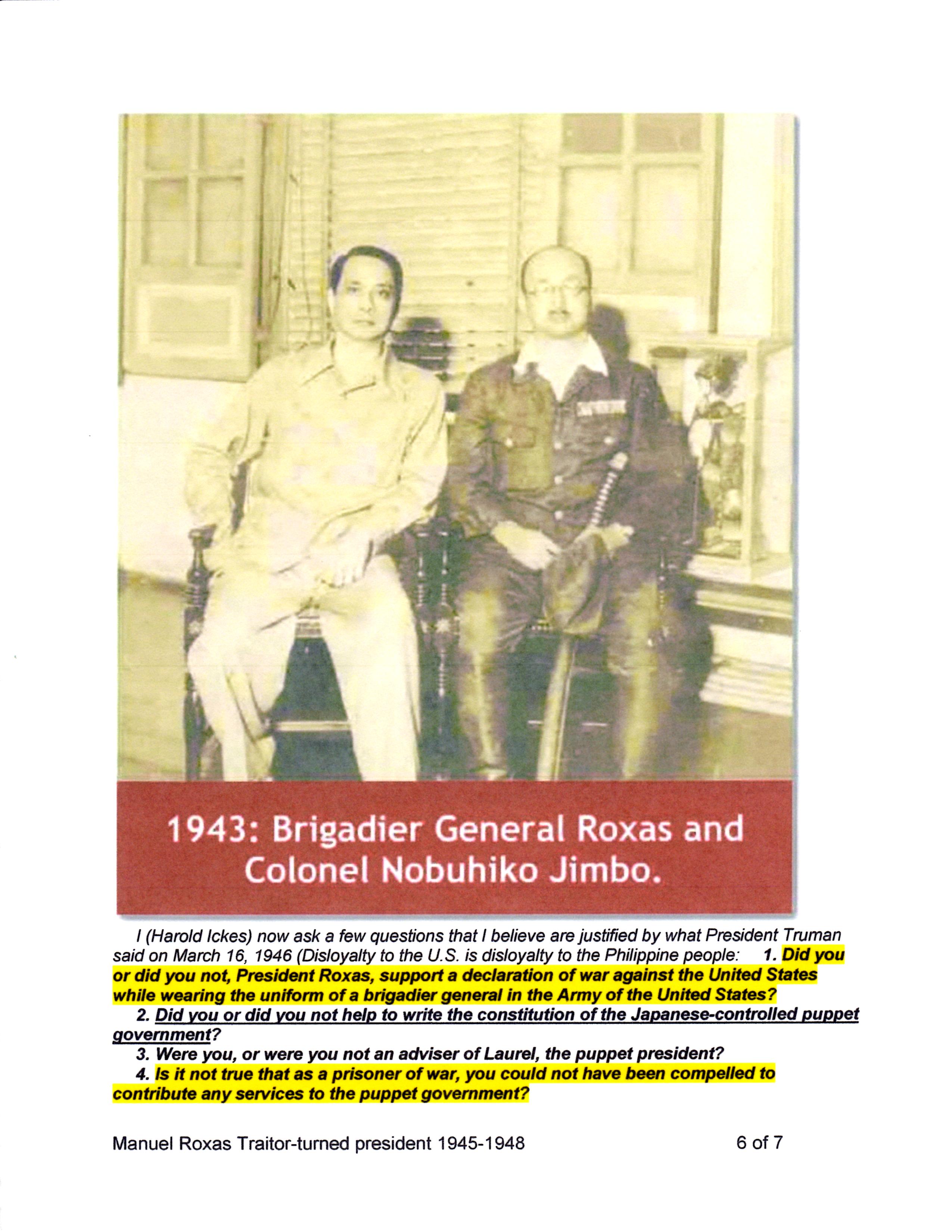
In his meeting with U.S. High Commissioner Paul V. McNutt, Roxas initially agreed to have 23 Navy and 13 Army military installations in addition to Clark and Subic Naval base. BUT WHEN THE U.S. DEMANDED JURISDICTION OVER US MILITARY PERSONNEL AND CIVILIANS ON OR OFF DUTY; ON OR OFF BASE, ROXAS PROBABLY REMEMBERED HE WAS A BRIG. GENERAL IN THE U.S. ARMY WHEN HE COLLABORATED WITH THE JAPANESE (see photo above). ROXAS PROBABLY REALIZED THERE WAS NO SUCH THING AS FILIPINO CITIZEN BEFORE JULY 4, 1946 WHICH MEANS HE WOULD GO BACK TO PRISON, LIKELY TO BE CHARGED WITH HIGH TREASON BEFORE A COURT MARTIAL.
Page 331 Stanley Karnow’s “In Our Image” 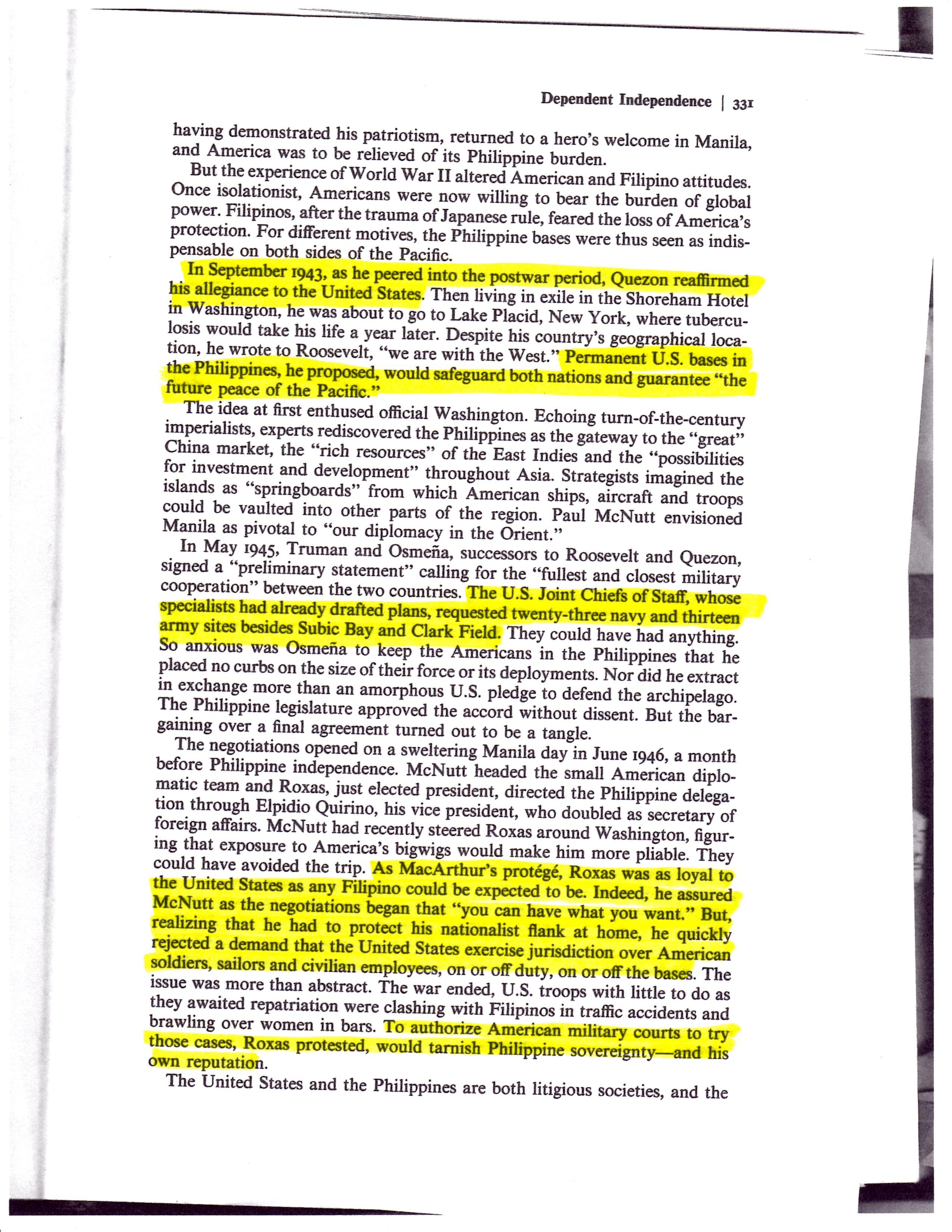
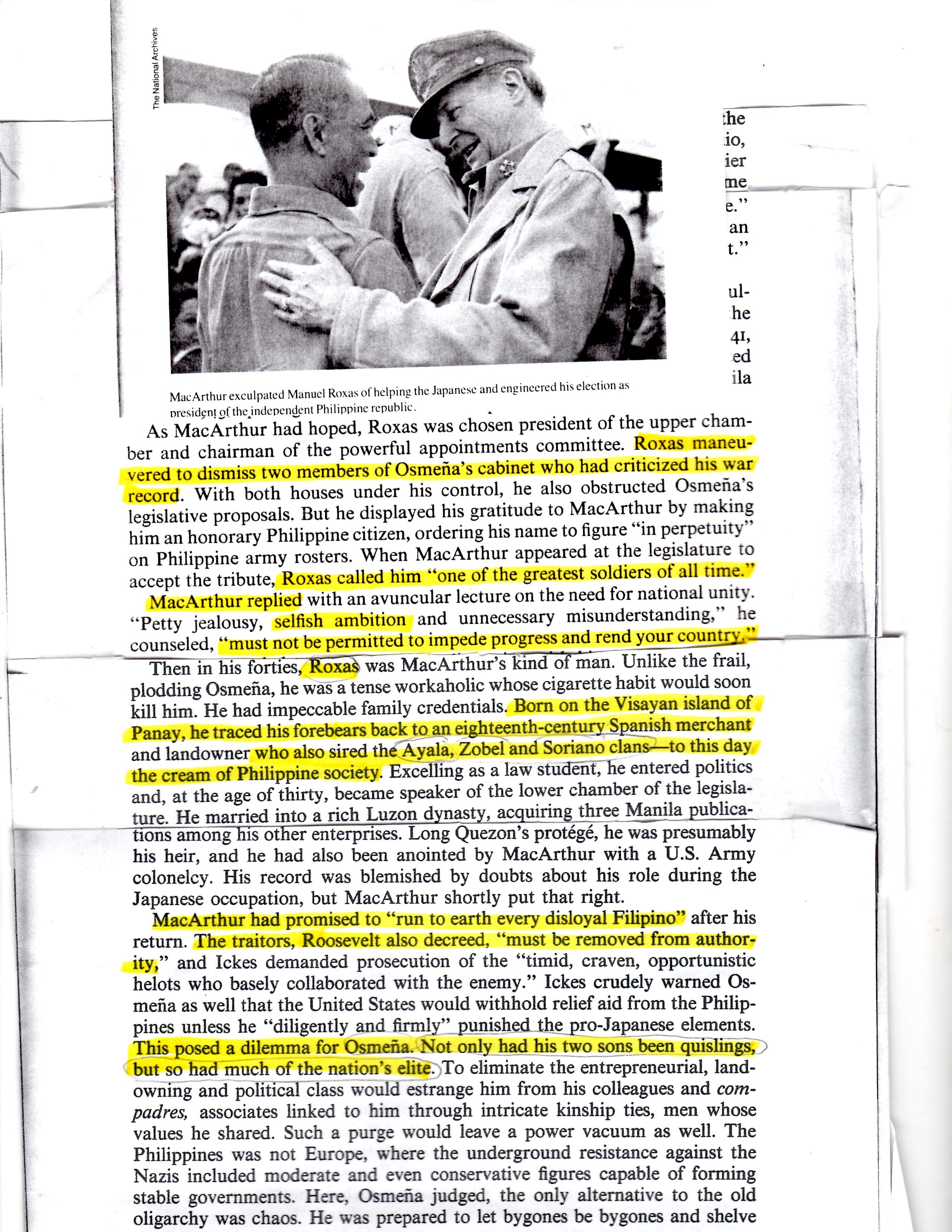
This is because Ayala, Zobel, Soriano, Araneta are relatives of Manuel A. Roxas.
Roxas initially agreed to have 23 Navy and 13 Army military installations in addition to Clark and Subic Naval base. But when the U.S. demanded jurisdiction over US military personnel and civilians on or off duty; off or on base, Roxas probably realized there was no such thing as Filipino citizen before July 4, 1946. Therefore he would go back to prison.
Page 331 Stanley Karnow’s “In Our Image”
